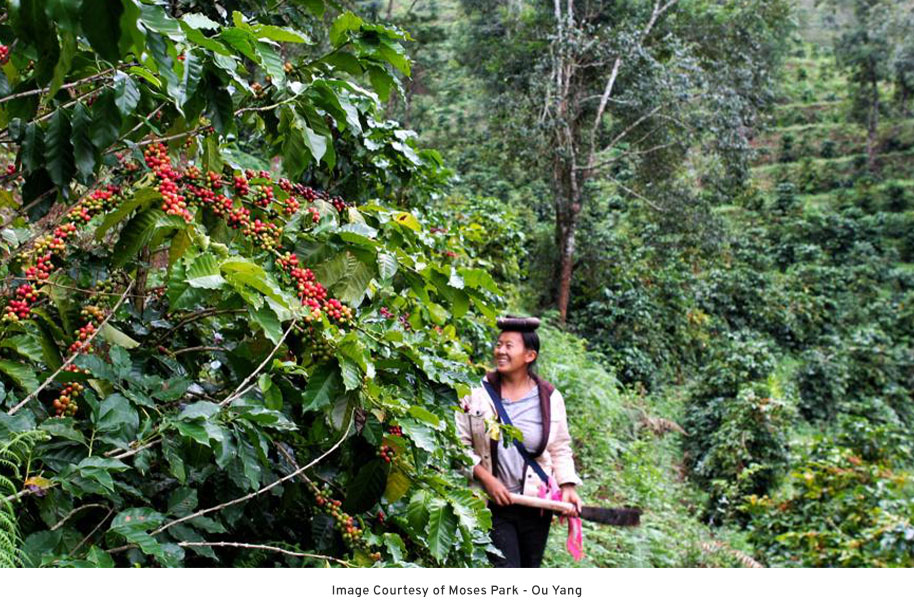
Ou Yang Coffee and Chillarch Coffee Plantation
We thought it might be a good opportunity to introduce the remarkable story behind one of our most popular coffees – Ou Yang. This coffee is named after Mr Ou, an innovative and visionary producer, who created a coffee farm and the surrounding infrastructure around it entirely from scratch to support the livelihoods of the local hilltribe communities. We first brought this coffee over to the UK in 2018 and have continued to do so every year since, working directly with Mr Ou and his team, alongside our export partners Yunnan Coffee Traders.
Mr Ou has always been a firm believer in people working together and sharing in the success of something they’d all contributed to. Following many years of fundraising and supporting charitable causes in Yunnan, Mr Ou began his coffee project in 2011, by buying an entire mountain with 84 hectares of land. He then built a road, before ridging the steep sides of the mountain to make the land suitable for coffee cultivation. Step by step, he began constructing buildings, bringing water and electricity to make the mountain habitable. As a result of this hard work, Chillarch Coffee Plantation was born in 2012.
Today, three quarters of the mountain is used for growing coffee and there are eight families living and working on the farm, representing six different indigenous hill tribe groups:
- Miao
- Lisu
- Yi
- Hani
- Naxi
- Dai
Mr Ou is keen to stress that the great coffee produced is down to the people who live and work here. They live like one family. Their vision is to help neighbours in the region also produce great coffee. This spirit of cooperation runs deep, with different producers from the region sharing experiences and mutual ideas with Mr Liu, the manager at Ou Yang, who continuously strives to perfect their much-admired ‘wine natural’ technique.
At Chillarch, they have been successfully developing their own processing techniques, experimenting with fermentation, drying stages and timings. While experimentation is ongoing and exact processing methods dependent on a number of factors (most notably the weather), the essentials are that cherries are hand-picked and then bagged for 2-3 days accelerating the chemical reactions that help breakdown the mucilage, before being spread out to dry in the sun. Once the cherries reach the requisite moisture level, they are then bagged again for another 4-5 days.
After the second fermentation, the cherries are spread out onto raised drying beds in a parabolic dryer for another 28 days. This technique is known as a ‘double-fermentation’ and requires very careful monitoring given the high risks of over fermentation and mould.
The vast majority of coffee produced at Ou Yang is washed process, most of which is sold in the domestic market. Less than 10% of their coffee is processed via the ‘wine natural’ method.
While the Covid crisis has meant that we’ve been unable to visit the farm since we were last there 18 months ago, we have remained in close contact and are committed to continuing our partnership for a fourth year. We value our friendship with Mr Ou and his team very highly, and we predict that their new season lots will gain even more fans when they land later this year.
